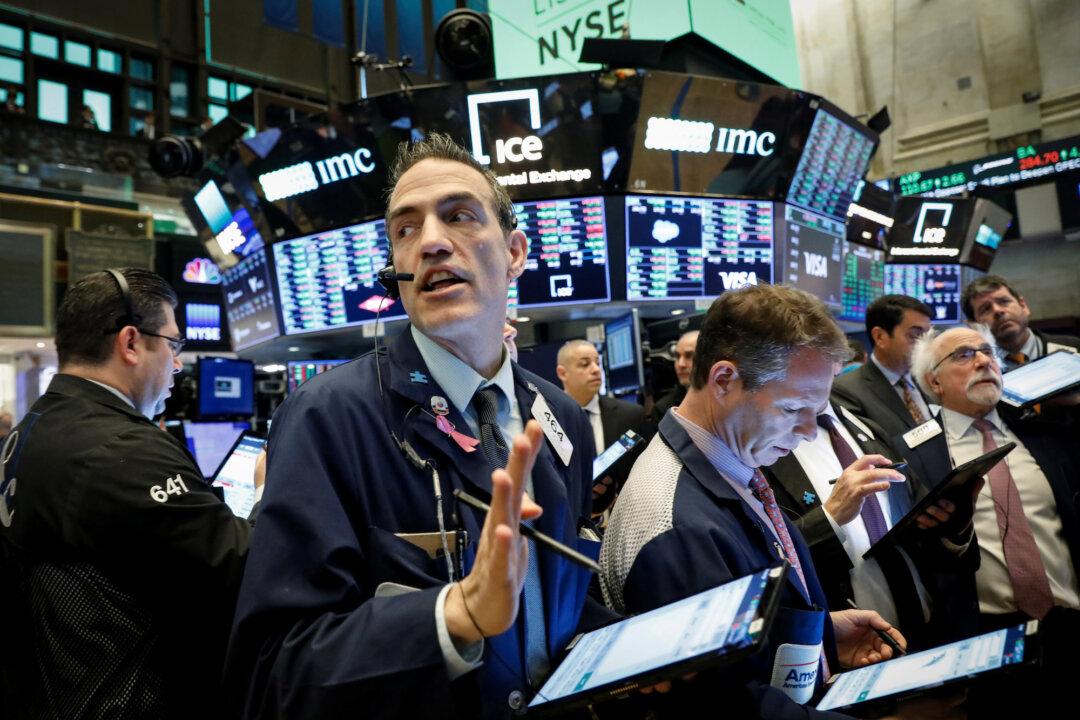The Dow Jones plunged over 1,400 points on the day the World Health Organization declared the new coronavirus a global pandemic, with Wall Street’s iconic blue-chip index officially entering bear market territory and putting an end to its longest bull market run in history.
All three major U.S. stock averages ended the session sharply lower, with the benchmark S&P 500 and Nasdaq composite index both about 19 percent below their Feb. 19 record closing highs.





